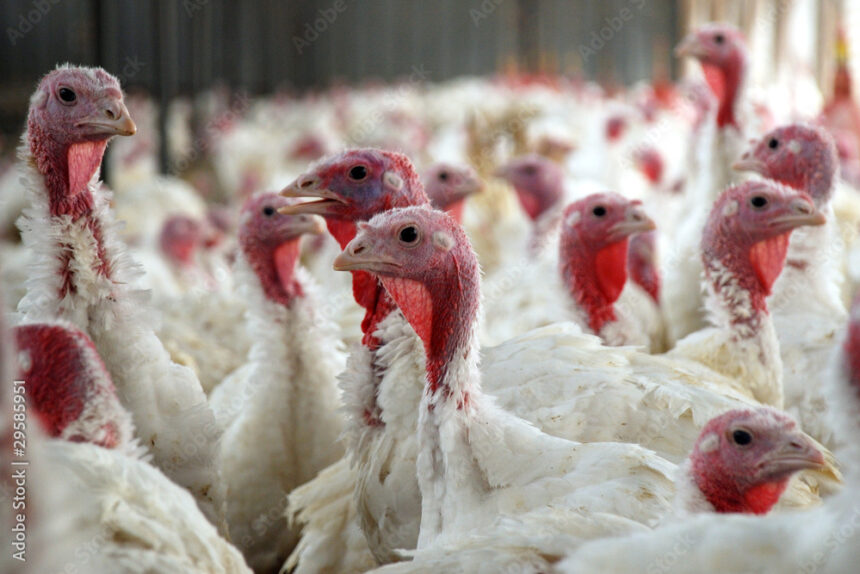Turkey farming has become increasingly popular in South Africa due to the rising demand for turkey meat and products. However, like any form of livestock farming, turkey farming is susceptible to various infections and diseases that can have a significant impact on the flock’s health and overall productivity. Understanding these potential risks and taking proactive measures to prevent and manage them is crucial for successful turkey farming. In this article, we will explore some of the most common infections and diseases to watch out for when engaging in turkey farming in South Africa.
- Avian Influenza (AI): Avian influenza, commonly known as bird flu, poses a significant threat to turkey farming. The virus can be transmitted through direct contact with infected birds, contaminated surfaces, or wild birds. AI can lead to severe respiratory distress, decreased egg production, and high mortality rates in turkeys. Implementing strict biosecurity measures, including limiting exposure to wild birds and properly sanitizing equipment and facilities, is crucial in preventing and controlling AI outbreaks.
- Newcastle Disease: Newcastle disease is a highly contagious viral infection that affects various avian species, including turkeys. It spreads through respiratory secretions, feces, and contaminated equipment. Infected turkeys may exhibit respiratory signs, such as coughing, sneezing, and nasal discharge, as well as nervous system disorders. Vaccination and proper biosecurity practices, including quarantine measures for new birds and regular disinfection, can help prevent the introduction and spread of Newcastle disease.
- Mycoplasmosis: Mycoplasmosis is a bacterial infection that can cause respiratory problems, reduced weight gain, and decreased egg production in turkeys. The bacteria can be transmitted through direct contact with infected birds or contaminated equipment. Maintaining good ventilation, practicing strict biosecurity, and implementing a vaccination program are essential to control mycoplasmosis.
- Blackhead Disease: Blackhead disease, caused by the protozoan parasite Histomonas meleagridis, primarily affects turkeys and other poultry. The parasite is commonly transmitted through the consumption of earthworms, insects, or contaminated feed and water. Infected turkeys may show symptoms such as droopy appearance, weight loss, and yellowish droppings. Preventive measures include maintaining good hygiene, regular deworming of turkeys, and preventing contact with wild birds.
- Coccidiosis: Coccidiosis is a common parasitic infection that affects the intestinal tract of turkeys. The disease spreads through contact with infected feces or contaminated litter. Infected turkeys may experience diarrhea, decreased growth, and increased mortality rates. Strict sanitation practices, proper litter management, and the use of anticoccidial medications or vaccines can help control and prevent coccidiosis.
Successful turkey farming in South Africa requires diligent attention to the potential infections and diseases that can affect the flock’s health and productivity. Adhering to strict biosecurity measures, implementing vaccination programs, maintaining proper hygiene, and practicing effective disease management strategies are crucial in minimizing the risk of outbreaks and ensuring the overall well-being of the turkeys. By staying vigilant and informed, turkey farmers can protect their flocks and ensure a profitable and sustainable turkey farming operation in South Africa.
Join 'Farmers Mag' WhatsApp Channel
Get the latest Farming news and tips delivered straight to your WhatsApp
CLICK HERE TO JOIN






